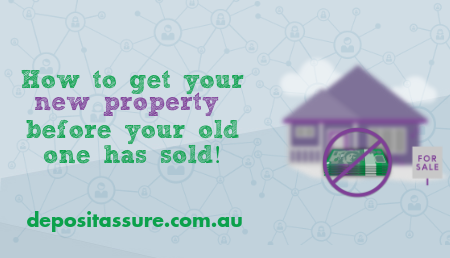The 10 Most Common Questions About Deposit Bonds Answered
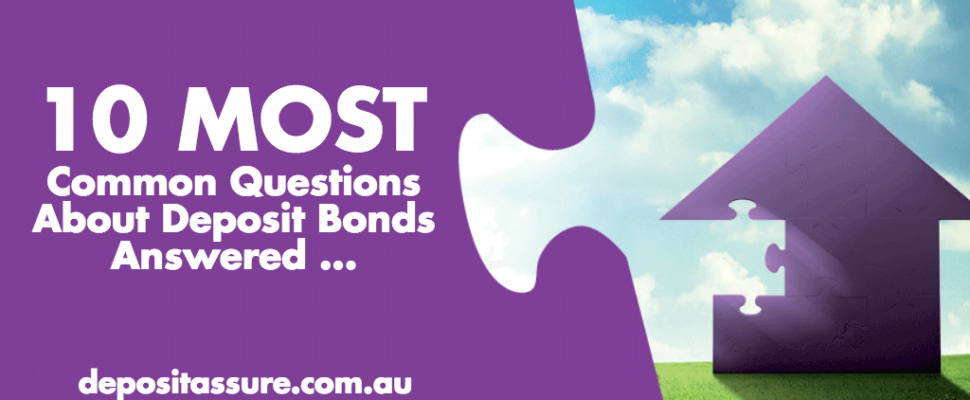
The 10 Most Common Questions About Deposit Bonds Answered
So you’re thinking of getting a deposit bond? Whether you’re a first-time home buyer, downsizing or buying off the plan, chances are you have a few questions. After all, buying any property is a big decision – you need to know the facts before you start.
Don’t worry – we’ve got the answers you need. The more you know about deposit bonds, the better you can prepare for the process and the sooner you’ll get the key to your new home.
Here are some of the most common deposit bond questions answered:
#1. WHEN DO I PAY BACK THE DEPOSIT?
You actually never pay us back unless there is a claim. Our role is to “guarantee” you for the deposit bond amount right up until you get the funds at settlement. In other words, our deposit bond tells the vendor that you’re good for the money.
Then, at settlement, you pay the full purchase price plus the deposit and any additional costs, like stamp duty. The only money that is exchanging hands is the deposit bond fee, which you pay to us upfront.
#2. HOW MUCH DOES A DEPOSIT BOND COST?
If settling under 6 months, the deposit bond one-off fee is 1.3% of the deposit amount required. For any settlements over 6 months, the fee depends on the deposit bond amount and the required length of time. To get an instant quote please use our fee calculator.
#3. DO WE PAY INTEREST?
The short answer is no! You only pay the one-off fee just before your deposit bond is released. That’s the brilliant thing about a deposit bond.
#4. HOW QUICKLY CAN A DEPOSIT BOND BE ISSUED?
Faster than you think. Complete a quick referral form to our concierge team here. Once completed, you can expect a preapproval within 15 minutes. You will then receive your application form ready for eSigning with Docusign within 1 business hour. Once you return your signed application & payment of the bond fee, your deposit bond can be dispatched in less than 1 business hour!
Once approved, the deposit bond is released immediately. Copies of your unsigned deposit bond are issued straight away to all parties (conveyancer/solicitor on both sides, real estate agent, mortgage broker, and the purchasers).
Then, the signed deposit bond is sent via express overnight post to your nominated party – normally the purchaser’s solicitor or conveyancer. So, we can move as quickly as you can get us the documents we need.
#5. AM I ELIGIBLE TO GET A DEPOSIT BOND?
Each case is different, however there are a few general rules:
✓ We can issue you a deposit bond if you hold formal finance approval or at least a conditional finance approval that is subject to valuation only.
✓ If you are selling a property and the funds from the sale is enough to purchase your new property outright, you can also be eligible for a deposit bond.
✓ If you do not have finance approval from a bank or when a property settles over six months, we need to conduct an asset, income and liability assessment. To be eligible for a deposit bond, you or your guarantor will need to own a property with some equity,
To check if you are eligible, simply complete a quick concierge referral here, or call us on 1300 798 797 and our concierge team will put your mind at ease.
#6. I AM A FIRST HOME BUYER, CAN I GET A DEPOSIT BOND?
We know how difficult and frustrating it is for first homebuyers to get into the property market. The good news is a deposit bond can help. If you already have formal approval for your finance through a family guarantor loan and your property settles within six months, we can issue you a deposit bond on this basis. No need for your guarantor to also sign your deposit bond (phew!).
If settlement is greater than six months, or you don’t have finance approval, you will need a guarantor to apply with you for your deposit bond. We need you or your guarantor to have a property with the required equity to release a deposit bond. This is so we can ask your guarantor to pay back the deposit amount in the unlikely event of a claim on your bond.
#7. I AM BUYING OFF THE PLAN – HOW LONG DOES THE DEPOSIT BOND NEED TO BE MADE OUT FOR?
In most cases, buying off the plan requires the deposit bond to be issued up to the “sunset clause” date. The sunset clause date is a provision in off-the-plan contracts that allows either the vendor or the purchaser to rescind the contract if the title to the property has not been created by a specific date.
You will find the sunset clause date in your contract of sale, or just ask your solicitor or conveyancer. While you’re there, look out for a separate clause in your contract relating to deposit bonds – some vendors may request to add additional time on a deposit bond.
Good news, if you can prove that settlement occurred earlier than 6 months from the expiry date of the deposit bond, a pro rata refund can be obtained. The maximum refund applicable is 18 months. Terms and Conditions apply.
#8. DO I NEED TO SEEK APPROVAL FROM THE VENDOR TO USE A DEPOSIT BOND TO SECURE MY PURCHASE?
Definitely. We recommend to always check with the real estate agent/ vendor to make sure they will accept a deposit bond instead of a cash deposit.
#9. WHAT ARE THE DIFFERENCES BETWEEN A DEPOSIT BOND AND A BANK GUARANTEE?
The idea behind a bank guarantee and deposit bond is the same: a bank guarantee is a guarantee from a lending institution ensuring the liabilities of a debtor will be met. In other words, if the debtor fails to settle a debt, the bank covers it. (definition by Investopedia)
But there are also some key differences that might impact which one you choose for your situation:
✓ Bank guarantees are secured – they require real estate or cash security to release.
✓ Deposit bonds are unsecured – when we do an assessment of your eligibility to get a deposit bond in cases where you do not have finance approval, we are doing so just to ensure you have the required equity calculation to support a bond in the event of a claim.
✓ Bank guarantees usually have higher set-up and ongoing costs compared to the one-off deposit bond fee.
✓ Bank guarantees have more paperwork for set-up compared to the fact deposit bond application (especially when you use our concierge service!).
✓ Deposit bonds are usually faster to obtain than a bank guarantee.
#10. WHAT DOCUMENTS WILL YOU NEED FROM ME?
As a general rule, we need the following documents:
✓ Contract of sale of the purchase property
✓ Contract of sale for the sell property (if applicable)
✓ Letter from your bank/lender for finance approval
✓ Photo ID for all applicants
Where assessing on income and equity and settling under 6 months we will also need:
✓ Rates notices for property/s owned
✓ Liability statements for your home loan.
Ready to go? Got more questions?
Simply complete a quick concierge referral here.
Our Blog
As a property-related service provider—whether you’re a mortgage broker, conveyancer, real estate agent or solicitor—it’s important to continuously improve the services you provide. Having a toolkit that solves your clients’ major pain points ensures that you’re able to keep offering excellent service, boost customer loyalty, repeat business and referrals. The fierce property market has only… Read more »
Guest Post: by Jared Zak from Dott & Crossitt Deposit bonds are being used increasingly in New South Wales and Queensland conveyancing transactions as an alternative to cash deposits. A deposit bond is essentially a promise given by a highly-rated financial institution to pay a vendor a sum equal to ten percent (or occasionally five percent)… Read more »
As we’ve seen recently, when developers and builders go into liquidation, the danger for your customers is that their cash deposit could potentially be tied up for years as the liquidation plays out. Even worse, their cash deposit could disappear – check out this recent news article here So in the current market when you are acting… Read more »
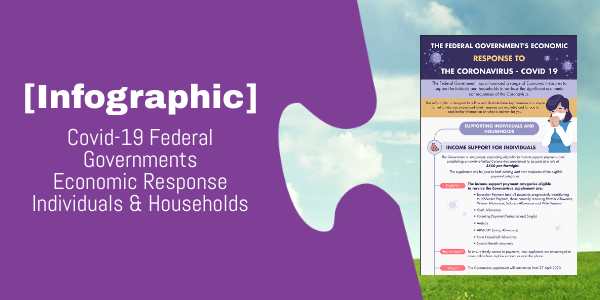
This infographic is designed to collate and illustrate the key measures the Federal Government has taken in response to The Coronavirus – COVID 19.
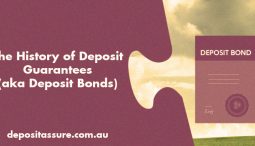
Ever wondered where deposit bonds came from? Deposit bonds, also known as deposit guarantees, have been helping Australians buy houses for almost two decades. So how did it all begin?

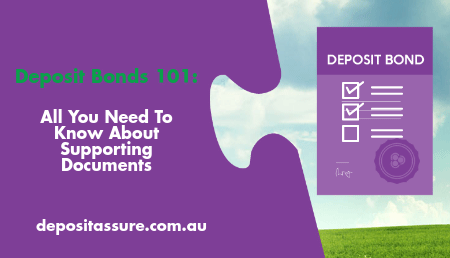
 Lodge & Manage Deposit Bonds for your clients
Lodge & Manage Deposit Bonds for your clients
